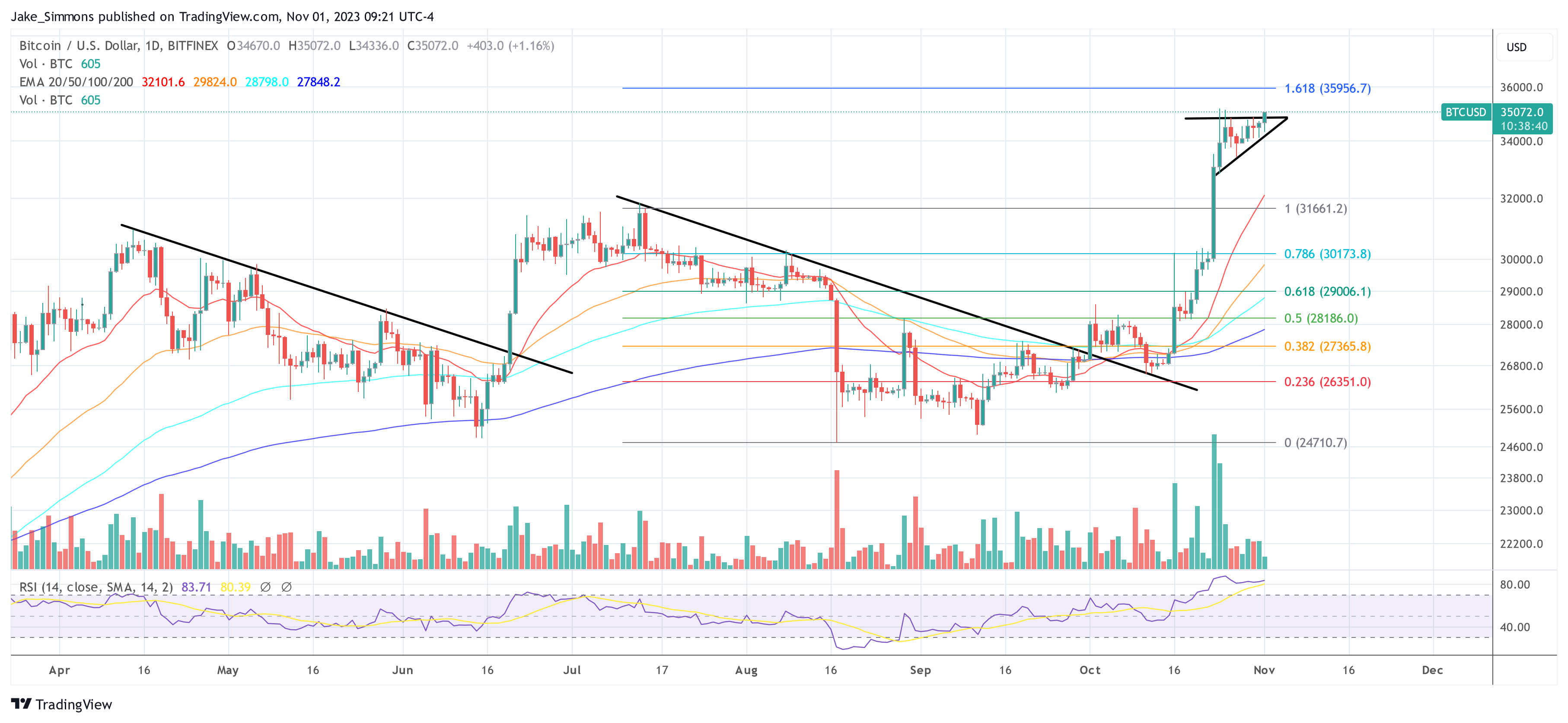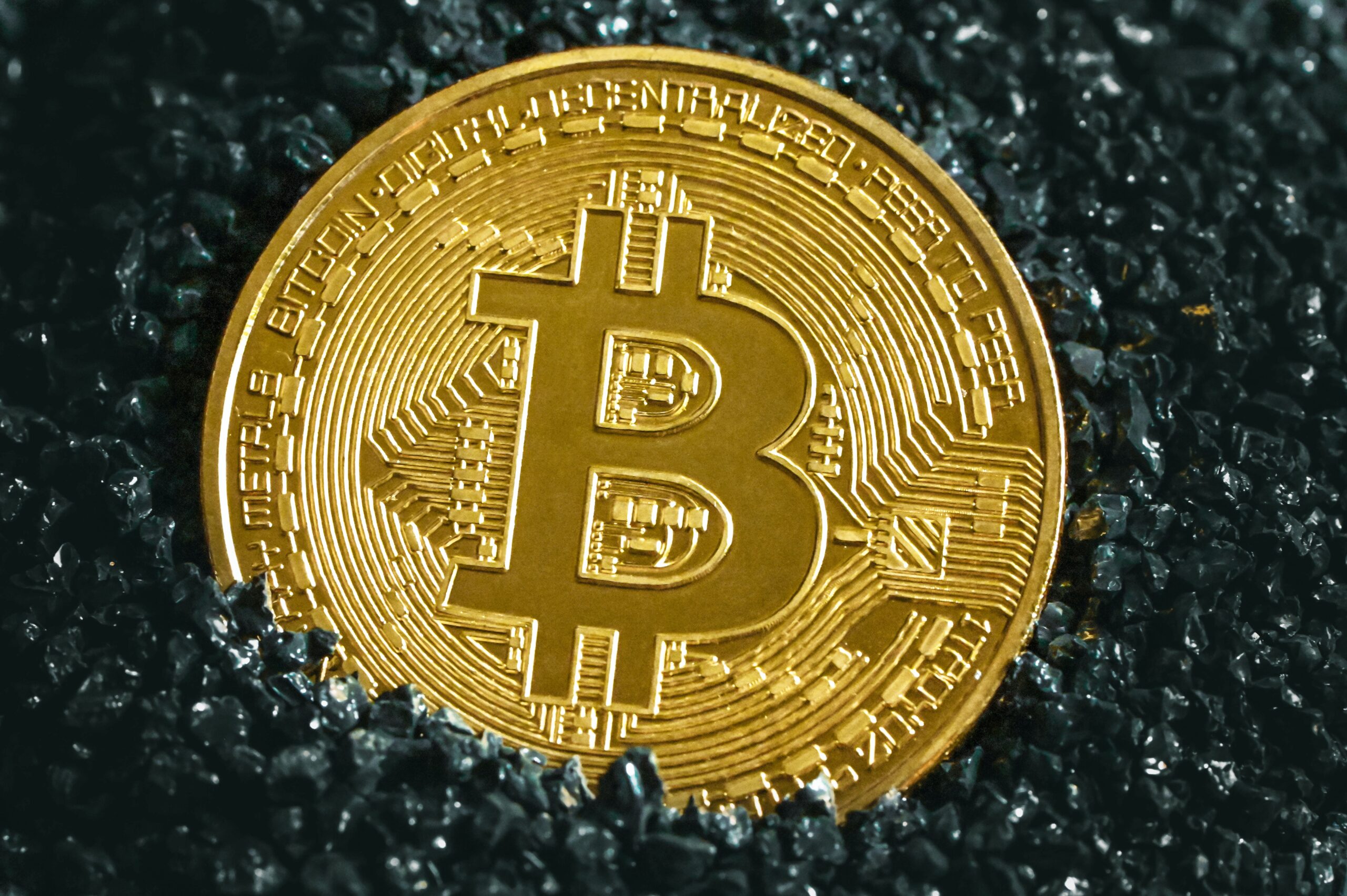In a recent interview with CNBC’s Market Alert, Mohamed A. El-Erian, a highly regarded economist and part-time Chief Economic Advisor at Allianz, gave his perspective on the shifting dynamics of safe-haven assets like Bitcoin amidst global turmoil. Previously known for his influential role as the former CEO and Co-CIO of PIMCO, El-Erian shared his insights on how US Treasuries are currently being perceived in the market.
Bitcoin Is Perceived “Safe Asset”
El-Erian stated, “There have been two big puzzles. They show how unsettling the volatility in the US Treasuries have been. One is, you haven’t had it been the safe haven. We haven’t seen the flight to quality, and the flight to safety you would expect, given what is happening in the world.”
He then went on to highlight the growing perception of alternative assets like Bitcoin and equities, “The second thing, that is equally counterintuitive is that you have people talking about Bitcoin and equities being the ‘safe asset’ because of that lost confidence in government bonds being the safe asset.”
The backdrop to this narrative has been shaped by the recent Israel-Hamas conflict, during which US Treasury bonds appeared to falter in their traditionally perceived safe-haven status. El-Erian’s comments resonated with the market observations as the yield on the US 10-year Treasury note rose to 4.9%, indicating a diminished demand for this government bond. In stark contrast, Bitcoin has surged more than 20% since the onset of the conflict.
Highlighting the disparity, El-Erian noted, “We haven’t seen the flight to quality or flight to safety that you would expect given what’s happening in the world,” referencing the increased 10-year yield following the Middle Eastern tensions.
Remarkably, El-Erian uses the same words with “flight to quality” as BlackRock’s CEO Larry Fink did recently when talking about Bitcoin – whether this has any meaning is debatable, but it is at least an attention grabber.
The Evolution Of El-Erian’s Bitcoin Views
El-Erian’s recent observations aren’t his first on the topic of Bitcoin and crypto. In November 2021, he shared his personal venture into BTC. “I felt compelled to buy it — I really did,” El-Erian confessed to CNBC’s Dan Murphy regarding his decision to buy Bitcoin near its $3,000 dip in 2018. However, his timing to exit the market was premature, selling in late 2020 as Bitcoin approached $19,000, only to watch it skyrocket to heights above $60,000 shortly after.
Describing his viewpoint on different types of Bitcoin investors, El-Erian explained, “There are ‘fundamentalists’ who are in it for the long haul, professional investors looking to diversify their portfolios, and day trading ‘speculators’.” He emphasized that he’d be more comfortable reentering the market once the day-trading speculators are “shaken out.”
At the end of October 2022, El-Erian acknowledged BTC’s disruptive potential. However, the economist has consistently maintained that BTC won’t eclipse the US dollar as a global currency:
To be clear, I do not think that Bitcoin will become a global currency, I don’t think you will get massive adoption when people say BTC will go to $200,000 or $300,000, they assume massive adoption. You will not get that. But crypto can and should survive as part of the ecosystem for payments and as an asset class.
In September this year, El-Erian recognized the maturation of the Bitcoin and crypto industry, noting its increasing institutionalization. He commented on CNBC’s “Squawk Box”, “Crypto is settling as part of the ecosystem. People have recognized it’s not the new global currency. People have also realized it’s not going to disappear tomorrow. It’s been institutionalized. If I were a crypto person, this maturation process is a good thing.”
At press time, BTC traded at $35,072.







